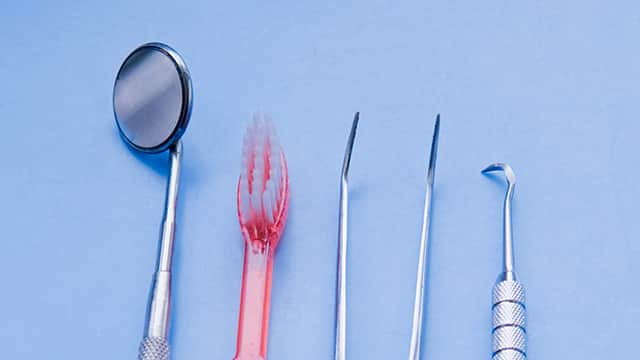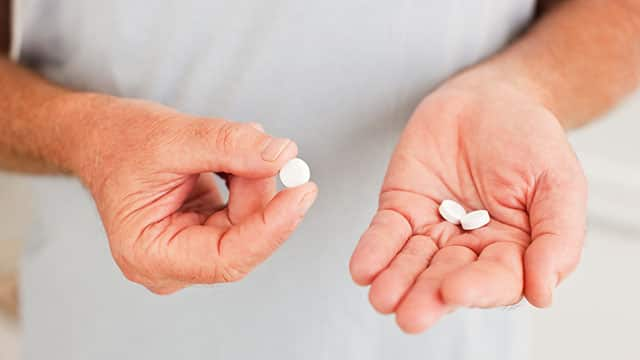What is Tooth Extraction?
Tooth extraction is the removal of a tooth and can be performed for various reasons, like:
- Damaged Teeth
If you have a damaged or broken tooth that your dental professional deems is beyond repair, they will likely recommend its removal. - Tooth Decay
Likewise, if your tooth has decayed to the point that it can no longer be treated with a filling, root canal, or crown, it may be best for your oral health to have it pulled. - Periodontal Disease
When bacteria builds up and forms plaque underneath the gums, it can cause gum disease. Its severe form is called periodontal disease, and it can erode your gum tissue and bone. This can cause your teeth to loosen and potentially require their extraction.
- Crowded Teeth
If you have a smaller jaw that doesn't fit all of your teeth, if you have extra teeth, or if you have a tooth growing into or on top of the tooth next to it – your dental professional may extract a tooth to eliminate overcrowding.
Learn more about tooth extraction.
How Long Does Pain Last After Tooth Extraction?
You can expect some bleeding for up to 24 hours after your extraction, and you mustn't do anything to disturb the blood clot that forms in the socket where your tooth used to be.
For most people, the pain tends to decrease after the third day. After about a week to ten days, granulation tissue forms, which protects the extraction site until bone can form there. You'll likely have a follow-up appointment after two weeks for your dental professional to assess your healing and to ensure you're on your way to a successful recovery.
If you're having a wisdom tooth extracted, the healing time may take longer. It could last several weeks, according to the American Association of Oral and Maxillofacial Surgeons.
The First 48 Hours After Tooth Extraction
The first two days after a tooth extraction is when the most aftercare and attention is needed. Here are some tips to make the most of this time:
- Leave the gauze your dentist placed in your mouth for a few hours to allow the blood clot to form. Then you can change it as often as needed.
- Rest for at least 24 hours after the extraction.
- Raise your head slightly when lying down.
- Avoid rinsing your mouth right away, as it can dislodge the clot that's forming, affecting your healing time.
- Avoid drinking with a straw and spitting.
- Avoid hot liquids and or alcohol.
- If possible, avoid blowing your nose and sneezing.
- Don't smoke or use any tobacco products for at least three days following the procedure.
- Take pain relievers as prescribed. They can also reduce inflammation.
- Reduce or minimize swelling with an ice pack on your cheek for 10-20 minutes at a time.
Day 3 And Beyond
Once your blood clot has formed, take these simple precautions to prevent other issues until your gum has healed completely:
- Rinse your mouth with a saline rinse or warm salt water to kill bacteria.
- Continue regular brushing and using water flossers or interdental brushes, but avoid cleaning the teeth next to the extracted tooth.
- Eat soft, healthy foods and snacks that don't require a lot of chewing, like soups, yogurts, and similar foods. Avoid foods like nuts, hard candy, steak, and chewing on ice.
What Are Some Recovery Concerns?
If you're experiencing any of the following symptoms, you should contact your dental professional:
- If pain after your tooth extraction increases rather than decreases.
- If gum swelling after your tooth extraction gets worse with time.
- If your blood does not clot and your bleeding does not improve (a condition called dry socket).
- If you experience a high fever, nausea, or vomiting.
- If you have severe pain that spreads to the ear.
- Or if you have drainage from the wound that tastes or smells foul.
Learn about dry socket prevention.
According to a study published in The International Journal of Environmental Research and Public Health, caries and periodontal disease were the most common causes of extraction in their study population. Thankfully these conditions are preventable by practicing good oral hygiene. Brush at least twice a day, and don't forget to brush your tongue. Consider using other helpful products like an antimicrobial mouthrinse and tongue scrapers. And be sure to see your dental professional for regular appointments. By visiting your dental professional regularly, you are better positioned to catch adverse effects on your teeth early so you can prevent avoidable extractions.
Recovery time and healing differ for everyone, but now you should be better prepared for what you can expect after your procedure. Ask your dental professional if you have any questions – they're certain to give you the best aftercare advice for your specific needs. With an experienced dental professional and some good self-care after your procedure, the next time you hear "It's like pulling a tooth!" you may respond, "So it's not that bad?" In fact, it may just make you smile.
Oral Care Center articles are reviewed by an oral health medical professional. This information is for educational purposes only. This content is not intended to be a substitute for professional medical advice, diagnosis or treatment. Always seek the advice of your dentist, physician or other qualified healthcare provider.
ORAL HEALTH QUIZ
What's behind your smile?
Take our Oral Health assessment to get the most from your oral care routine
ORAL HEALTH QUIZ
What's behind your smile?
Take our Oral Health assessment to get the most from your oral care routine















